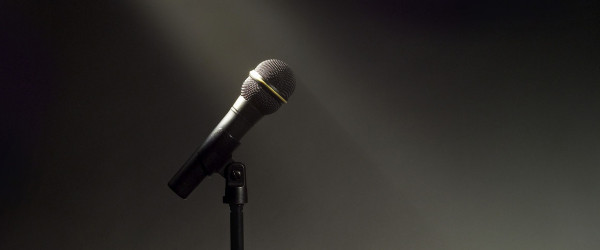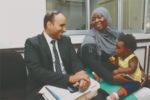When I first heard about the solidarity movements happening mainly in the US; the interfaith meeting in Utah,‘Walk a Mile in Hijab’ initiative at a Chicago high school, the Christian professor at Wheaton College, I wasn’t sure how I felt about it. I kept thinking it’s a nice gesture but was it necessary? Weren’t there better ways to show solidarity or support for Muslims? What about women who didn’t wear hijab, didn’t this leave them out of this sisterhood? And what about how the spotlight was being lifted off of Muslim women and focused on their non-Muslim counterparts? Do the experiences of those women outweigh our own experiences?
But every time I brought this up to anyone, I was told I was being negative. I would be given a disappointing look and told to ‘Focus on the positive.’ But just because something has a positive spin doesn’t mean it doesn’t have a negative side. So I started to do a little research. And not only have other Muslim women brought up the very same questions but this whole movement has a name. It’s called ‘hijab tourism’. Who knew?
In reaction to the news of the Wheaton College Professor, Larycia Hawkins, wearing the hijab, Salon ran an article with the title: A Christian Professor Wore a Hijab to Protest Islamophobia. What Do Hijabi Women Think? What is remarkable about this piece is that it goes straight to the source, hijabi women:
Amarra Ghani, a 25-year-old Muslim journalist, says that as a hijabi woman who understands the power of human curiosity, she can accept Hawkins’ act as part of a lesson to help her students and colleagues learn about Islam and Islamophobia. “But wearing it around as if to say ‘I understand your struggle, I understand what you’re going through and I am standing up with you’ isn’t something that can be accepted,” Ghani told me. “Hawkins may be attacked, looked at differently, stopped at the airport—but at the end of it all, she will be able to leave her experiment.”
I agreed. As I delved more into the research, I found the same sentiment expressed over and over. Muslim women don’t want others speaking for them. If you want to know the experiences of Muslim women wearing hijab, just ask them. We have had a roundtable conversation here on MMW about journalists wearing hijab to get a “feel” for what it’s like to be a hijabi Muslim. While many of us do appreciate the journalists’ intentions, in the end it “ends up eclipsing the experiences of actual Muslim women who do wear hijab, as the journalist’s own experience is what gets written about. This kind of practice, even when done by journalists with good intentions, reinforces a common image that Muslim women cannot speak for themselves, and need someone else to speak for them.”
Here we are, five years later visiting the same topic. But in this case, it isn’t so much about seeing what hijab is like but offering moral support. Because of recent spikes in attacks toward Muslim women, easy targets because of their hijab, non Muslims wanted to take some of the burden onto themselves. But is it effective? Again, we’re also forgetting about all the Muslim women who don’t wear hijab but still experience Islamophobia. What of their experiences? Where do they fit in these experiments?
I don’t need to wear blackface to know that #BlacklivesMatter. I can listen to the experiences of Black people without needing to investigate whether or not it’s true. And that’s what these hijab movements feel like to me. I’d rather non-Muslims become our allies in other ways; speaking up to bigots when they spew Islamophobic vitriol, offering to walk together, or a simple “hey I don’t agree with any of this.” Wearing a hijab without education or speaking to those who wear it isn’t going to add much to your experience. Instead of ‘Walk a Mile in Hijab,’ let’s walk a mile with a hijabi. Believe me when I say, you’ll get more of a taste of the prejudice she endures just by being with her because people are wondering why you’re friends with her.
In investigating the question of hijab and solidarity, I came across the Washington post article, by Asra Q. Nomani and HalaArafa with the title: As Muslim women, we actually ask you not to wear the hijab in the name of interfaith solidarity. In it, the authors take aim at the hijab itself. They argue that it is an oppressive tool used by Islamist clerics and should not be taken up by Muslim women let alone non-Muslim women. But let’s not fool ourselves. This article had little to do with solidarity movements. It was just a chance for them to take shots at the hijab which they don’t agree with.
Everyone is entitled to their opinion but it is important that everyone speak for themselves. This article does not speak for me. How can two women who don’t wear hijab speak for me, a hijabi woman? Every Muslim woman has her own voice. All of them are valid. And no one needs to speak for anyone else. To package us all together, to make statements about what the hijab is to all women is irresponsible. Ironically, this article, in its takedown of hijab, brought out the very voices it was trying to suppress. Many posts by Muslim women were written to counter the argument laid out in this piece and there were even some by Muslim men and non-Muslims offering their support and praise for women who chose to wear hijab. I think that’s the best support of all.
Header image source



